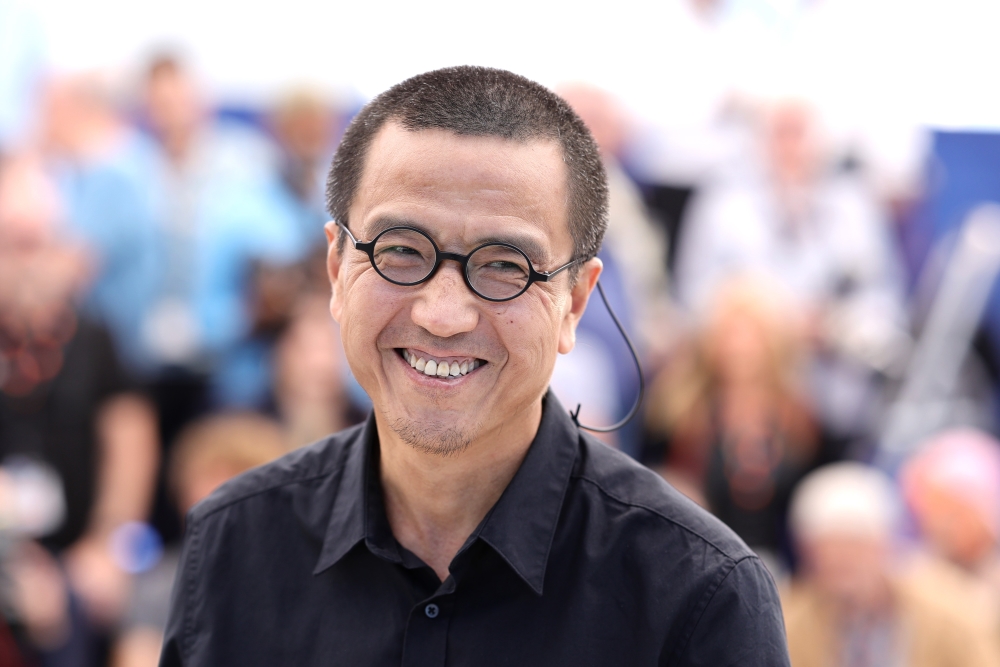Lou Ye: A beacon for aspiring filmmakers
Chinese auteur Lou Ye made a brief yet impactful appearance at the First International Film Festival in Xining, quickly returning to Beijing after fulfilling his mentorship duties. Despite his short stay, his presence resonated deeply with the festival’s audience, particularly the young and aspiring filmmakers who see him as a hero.
A legacy of defiance and social commentary
Lou Ye’s reputation extends beyond his acclaimed films like Suzhou River, Spring Fever, and Saturday Fiction, which have graced international festivals. His audacity in challenging China’s censorship, notably with the romantic drama Summer Palace, which earned him a five-year filmmaking ban, has cemented his status as a relentless critic of social dynamics.
The evolution of ‘An Unfinished Film’
Lou’s latest work, An Unfinished Film, premiered at Cannes and is poised to stir controversy once again. Initially conceived in 2019, the film aimed to repurpose unused footage from Lou’s previous projects featuring Qin Hao. However, the COVID-19 pandemic forced a radical reimagining of the project. The film evolved into a narrative about a group of filmmakers in lockdown, struggling to stay connected with their families.
The challenge of modern screens
A significant portion of the film depicts video calls between characters and their families, presenting a unique challenge. Lou noted, “The film screen is horizontally wide, while the phone’s screen is the opposite. You could say that the phone screen’s format is ‘anti-film’. But the phone screen is the [dominant] modern screen. How can we exclude today’s screen from our movies? It’s unthinkable.”
Rather than adopting a ”screenlife” approach, where the entire film unfolds within a computer interface, Lou opted to reconstruct real dialogues and have actors voice the lines. This method, though challenging, was essential to capturing the tension and restraint of pandemic-induced quarantines and lockdowns.
A work in progress
Lou confirmed that An Unfinished Film remains incomplete. Whether this implies a recut or a sequel is yet to be revealed. Lou describes it as a “very personal project” that he will continue to develop.
Future endeavors
In addition to An Unfinished Film, Lou is reportedly well into another project, tentatively titled ”Three Words” or “Re-TROS After the Applause Nan Jing Documentary.” This new venture promises to further explore Lou’s distinctive narrative style and thematic focus.
Reflections on Lou Ye’s impact
For cinema enthusiasts, Lou Ye’s work is a testament to the power of film as a medium for social commentary and personal expression. His films often delve into the complexities of human relationships and societal constraints, offering a raw and unfiltered perspective that resonates with audiences worldwide.
The significance of mentorship
Lou’s role as a mentor at the First International Film Festival highlights the importance of nurturing new talent in the film industry. His guidance and insights are invaluable to young filmmakers who aspire to push boundaries and challenge norms, much like Lou himself.
A personal take
As a fan of Lou Ye’s work, I find his approach to filmmaking both inspiring and thought-provoking. His ability to weave personal narratives with broader social issues creates a compelling tapestry that invites viewers to reflect on their own experiences and the world around them. Lou’s films are not just stories; they are conversations that continue long after the credits roll.
For those interested in exploring Lou Ye’s filmography, I highly recommend starting with Suzhou River and Spring Fever. These films offer a glimpse into Lou’s unique storytelling style and his unwavering commitment to authenticity.
In the ever-evolving landscape of cinema, Lou Ye remains a beacon for those who dare to tell stories that matter. His work challenges us to look beyond the surface and engage with the deeper truths of our shared human experience.

 Italian
Italian







